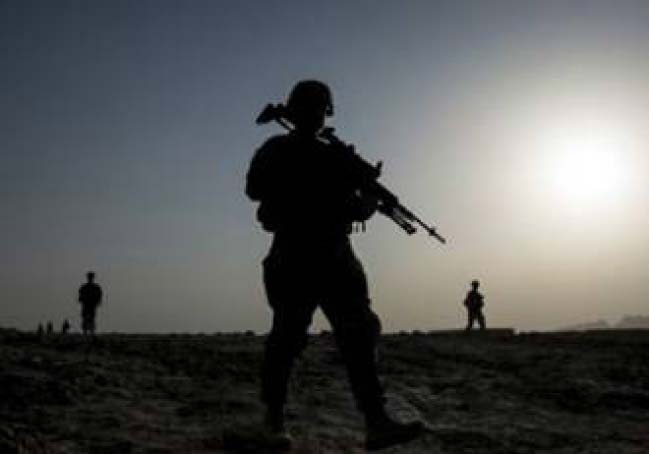Political pundits are not optimist about Afghanistan despite heavy sacrifices made within the last decade to bring in peace and security. The “war on terror” was proved abortive and the Taliban insurgents have escalated their terrorist activities more than ever before. Similarly, the emergence of the self-styled Islamic State of Iraq and the Levant (ISIL) has worsened the security situation. Hence, the civilians, including women and children, are left at the mercy of terrorism.
The second deputy CEO of Afghanistan, Haji Mohammad Mohaqiq, has said in his recent statement that the security situation will deteriorate and that the people should prepare for a drawn out war. He further stated that the government is at war with Taliban, but Taliban have strong defense lines in remote regions and mountainous areas. According to him, the Taliban are being supported strongly in Helmand province for its close proximity to the border. “We are extremely concerned about the existence of all terrorist groups in Afghanistan,” Muhaqiq is cited as saying. “Daesh will likely gain strength in the north rather than southern regions in spring”.
In the meantime, the commander of NATO forces in Afghanistan, General John Campbell, has said that foreign warriors from Syria and Iraq had joined Afghans who had declared loyalty to the group in the eastern province of Nangarhar, bordering Pakistan. According to Campbell, the self-styled Islamic State of Iraq and the Levant (ISIL) supporters in Nangarhar seek to consolidate links with the group’s leadership in Syria and Iraq. Many of those who had pledged allegiance to ISIL were “disenfranchised Taliban” from both sides of the border, he continued.
The emergence of the ISIL group has triggered a sense of great fear across the country not only for political officials but also for common citizens. Most probably, the mysterious abduction of innocent civilians – which is intended to stoke sectarian violence among the nation – is carried out by members of the ISIL group. If the ISIL insurgent group achieves to establish their strongholds in the country and strengthen links with central leadership, Afghanistan will encounter a drawn out war – as Muhaqiq predicted. With the Taliban’s spring offensive, a large number of Afghan combatants and non-combatants either lost their lives or got amputated. And the revelation of Mullah Omar’s death, which led to splinter group, and appointment of Mullah Mansour as Taliban’s new leader resulted in further turmoil higher death toll in the country. Now, Muhaqiq believes that the shift will change for ISIL militants in coming spring and they will embark on heavy attacks in northern districts. However, he said that the people should prepare for the war rather than pointing to government. Similarly, he said that a public uprising is the key element to supporting security forces during battles when needed. “When we talk public uprising, this covers the entire population of Afghanistan.”
Constitutionally, the government is responsible to combat terrorism and provide security for the public. However, with the deterioration of security in recent months, the local people resorted to arms to counter insurgency and a number of others are entitled to bear arms for their protection. It is believed that when simple individuals are forced to safeguard their lives by their own, the government will be no more held in trust. Additionally, it would be a major reason behind the current brain drain. Arming the ordinary citizens is an indication of failure. Therefore, a large number of Afghan youths have left the country in despair.
People are highly susceptible to terrorism. Reports say that the fight between Afghan soldiers and Taliban militants in Helmand province has continued to intensify. Since the Taliban have centralized their attack in Helmand, it is feared that the Kunduz scenario will repeat there. Local people suffered the brunt of cruelties in Kunduz. As a result, a number of individuals were tortured, killed and raped by the militants and many more were displaced inside the country. The release of the dangerous prisoners by the Taliban from Kunduz province left greater harm on security situation.
Both Muhaqiq and Campbell expressed their concerns over the increase of ISIL’s militants and their link with the leadership of Iraq and Syria. Muhaqiq suggested “public uprising” as a way to curb militancy – which is beyond the people’s responsibility and capability. The government officials will not have to pass the buck to the citizens or evade their obligations. Based on theory of “social contract”, the citizens have submitted to the government’s authority to have their rights and freedoms protected in return. However, their blood is spilled and their rights to liberty and property are violated in one way or another. After all, more than a year has elapsed from the establishment of National Unity Government (NUG), the Ministry of Defense – which plays a key role concerning security – is managed by acting head. Similarly, the legal period of parliament was over months ago, but the country is not ripe financially for the election. So, who is responsible for all these challenges, government or people?
Giving lip service to democracy will never mitigate the political and economic crises. The aforementioned predictions about growing militancy and ISIL’s stronger foothold in the country are true. But an effective mechanism is not suggested to counter the insurgency and prevent from evil scenario. So, the officials must figure out the strategy to thwart the terrorists’ plot and combat militancy effectively.

